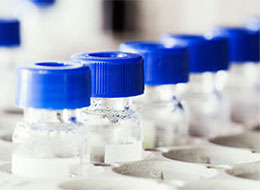Challenges in Chromatography
Processing times can be reduced and yields increased by utilizing new hydrophobic interaction chromatography tools
Advances in protein and peptide engineering continue, enabling the creation of new biological products with improved therapeutic and diagnostic potential. Bringing these promising biologics to market effectively depends, in part, on solving significant downstream purification process challenges – such as separation of closely related impurities – that are the result of the increased complexity of producing these biologics.
Platform-based chromatographic approaches have been successful in separating and purifying monoclonal antibody products, but the newer generations of biologics feature different hurdles for purification process developers to overcome. Product- and process-related impurities, including host cell protein, aggregates, and charge and glycosylation variants, are persistent and often difficult to separate. As a result, process developers are increasingly exploring mixed-mode and multimode chromatographic media to achieve these separations.

Solutions for bioprocessing
From the small-scale bench to full commercial manufacturing, we enable our customers to reach the market with new treatments for patients, faster and safer. Learn more about our offering for biopharmaceutical manufacturing.
Author

Dr. Nandu Deorkar
Senior Vice President, Research & Development – Biopharma Production, Avantor
Nandu Deorkar is Senior Vice President, Biopharma Production Research & Development for Avantor. He is responsible for innovation strategy and planning, and execution of new products and technology development. During his more than 25-year career in research & development, Dr. Deorkar has been leading teams working on various aspects of upstream and downstream bioprocessing, single use systems, chemical/polymer R&D, drug development, formulation, drug delivery technologies, process development, and technology transfer. He has published more than 30 articles and holds more than 20 patents. Dr. Deorkar received Ph.D. from Indian Institute of Technology, Mumbai, India and MBA in Marketing from Fairleigh Dickinson University, Madison, NJ, USA.



